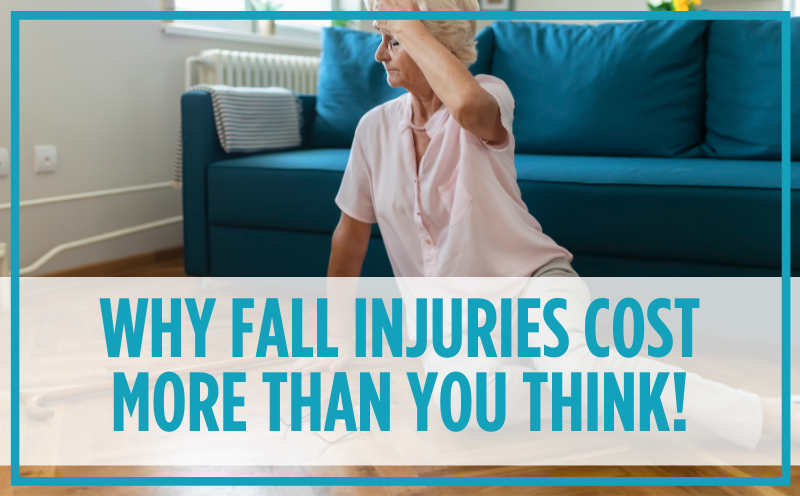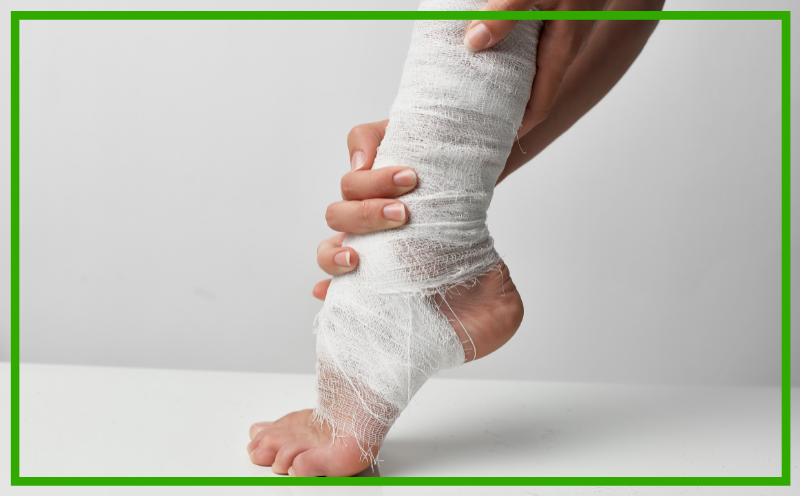
Fall-related injury belongs to the top 20 most expensive medical conditions. Think about what you can do with the extra money you can save if you can avoid it instead!
The medical costs of fall injuries increase with age.
Common Fall-Related Injuries
- Hip/Pelvic Fracture is the most costly among fall injuries, the direct cost amounting to an annual average of over $50,000 per patient. The length of hospital stay is also much longer than the average.
- Head, Neck, and Spine Injuries are the most sensitive to treat as they affect brain function and overall physiological processes. Concussions and bruises may be easier to manage but serious cases such as skull fractures, herniated discs, broken vertebrae, and hemorrhage require complicated medical procedures.
- Shoulders and Back Injuries may range from minor sprains to dislocated shoulders or broken bones. Severe cases may end up in paralysis. Surgery is needed to treat such conditions.
- Knee Injuries in seniors can be a major hurdle in daily functioning. Depending on the severity, medications, physical therapy, or knee reconstruction may be suggested.
- Soft Tissue Injuries such as minor wrist and ankle sprains or torn tendons and ligaments can cause chronic pain and extra care as they increase the likelihood of a more serious injury.

About 1/3 of seniors experience a fall each year with over 50% of the cases ending in the emergency department!
Direct Costs of a Fall Injury
Because of their age, even minor injuries in seniors may require hospitalization. The costs of a fall injury may include but not limited to:
Hospital Costs and Professional Services
- Ambulance Services
- Prescription Medications
- Surgery/ Medical Treatments
- Bed Stay and Outpatient Charges
- GP/Specialist Consultations
Rehabilitation and Community-Based Services
- Nurse Visits
- Residential/Domiciliary Care
- Psychological Care
- Physical Therapy
The cost of fall injuries in the US amount to $34 billion each year!
Indirect Costs of a Fall Injury
Indirect costs pertain to the person’s productivity losses following the accident:
- Lost income (Economic Cost)
- Social Isolation
- Pain and Trauma
- Disability
- Dependency to Others
- Reduced Quality of Life
- Loss of Freedom
The Most Costly of All!
The highest price paid for a fall is LIFE! Advancing age coupled with existing medical conditions decreases the chance of recovery and increases the fatality of a fall in seniors.
Falls are the second leading cause of accidental deaths worldwide, second only to road traffic injuries.

How to Avoid Falls
A combination of risk factors contributes to falls. Know Your Risk Factors and Act on Them.
Physical Factors
- Existing Medical Conditions may be one of the factors that we have little to no control over. Proper diet, regular exercise, and adequate sleep tremendously help in managing them.
- Balance problems- Do a balance exercise and have your hearing checked periodically (the organ for balance is found in your ears!).
- Muscle Weakness- Exercise is your best friend. Not only does it improve your bone and muscle strength but also improves your mood.
- Poor Vision- Have your vision checked regularly.
- Vitamin D Deficiency- Make it a goal to have sun time and take supplements if necessary.
- Types and Combination of Medications taken- Talk with your doctor before taking a prescription. Ask for possible side effects and proper management.
Environmental Factors
- repair broken and uneven steps
- wet floors should be cleaned immediately
- throw rugs and carpets should be secured with tape or suction cups
- clutter– should be removed and things should be organized, if possible placed within reach
- lighting– make sure the rooms, hallways, stairs are well-lit and lights are positioned properly
- Stairs should have handrails
- Grab Bars should be installed in places where slips and falls frequently happen.
Even with Medicare, Medicaid, or Insurance, the cost of a fall is still not worth the risk. More than the monetary aspect, we value the intangible costs we can lose from a fall- safety, peace of mind, freedom to do what you love, and a high quality of life!
By taking preventive measures as early as possible, you can significantly reduce the probability of fall injuries and avoid any unnecessary trips to the hospital.
The above suggestions are only a few of the things you can start doing today. Consult with a Professional or Aging in Place Specialist you trust!
So back to the question above, what will you do with the money you can save by preventing falls?
Less for healthcare, more for you!
If we may suggest, you buy yourself a lovely present for staying safe, healthy, and free!
You certainly deserve a sweet treat for all your hard work!
Recent Comments